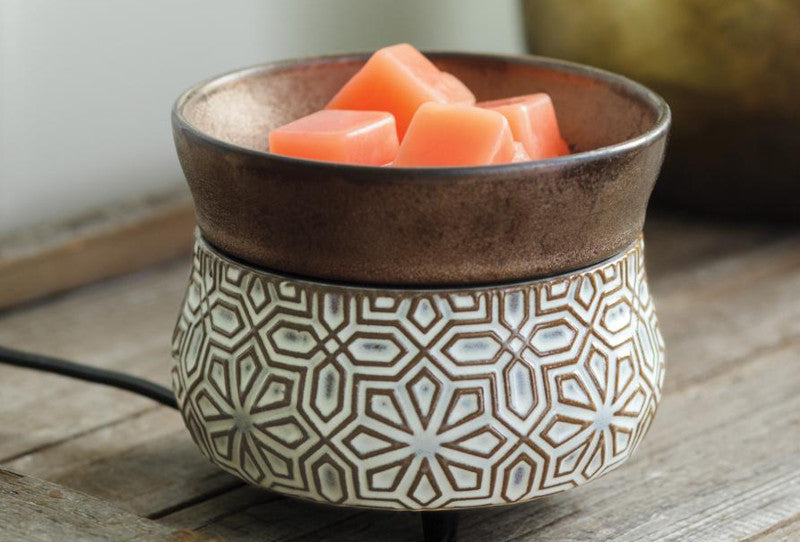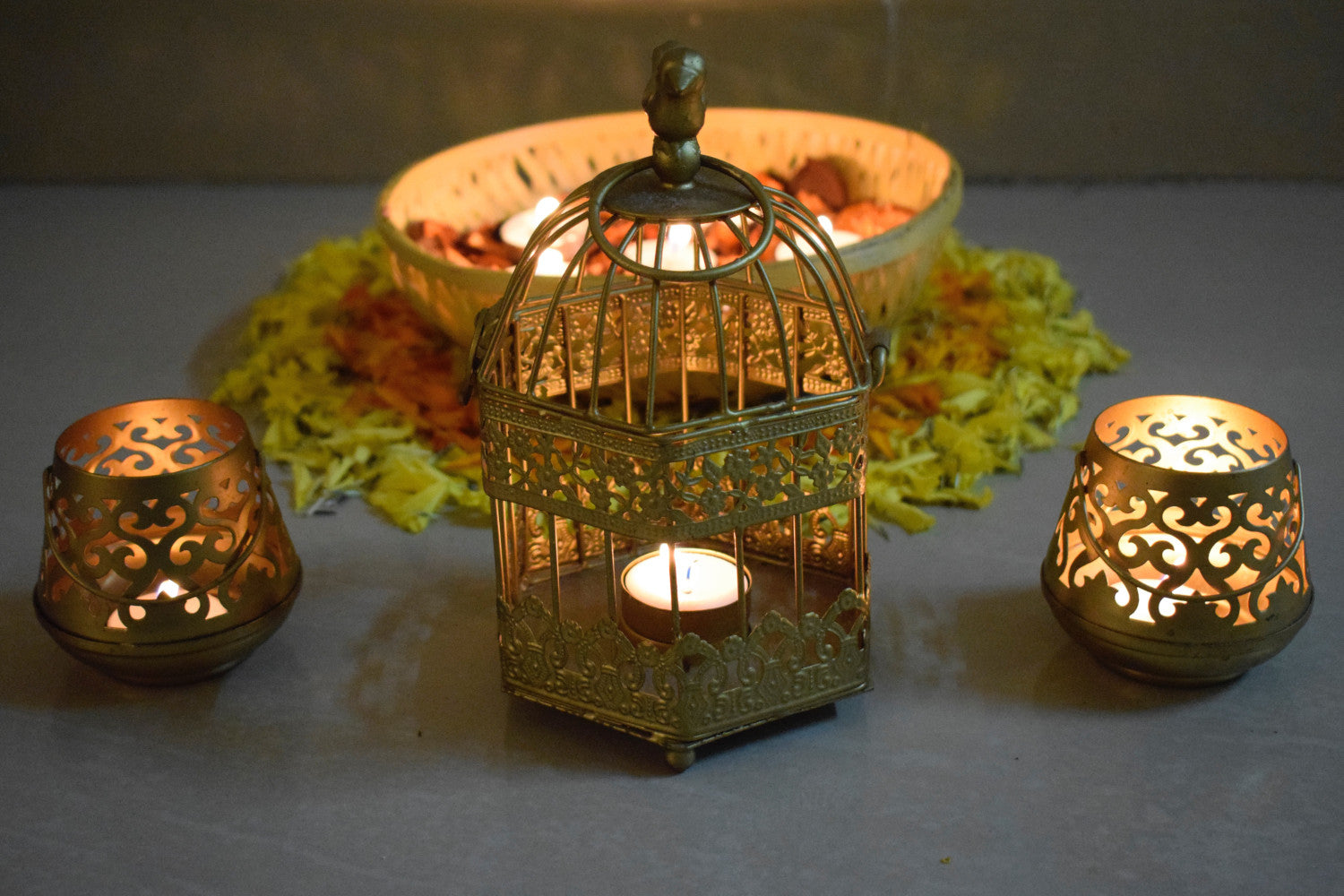People make candles out of all sorts of waxes. There's the common paraffin wax and beeswax. Then there are the vegan-friendly waxes made from soy, coconut, and palm. So, yes, soy wax is vegan--but a soy candle is not always vegan-friendly.
Not all candles made with vegan-friendly waxes are entirely vegan. This is because candles often use stearic acid and beeswax to stabilize the candle and improve its scent. Stearic acid is commonly found in both animal and plant fats, while beeswax is produced by honey bees.
Fortunately, there are vegan candles that do not contain any animal products. The key is to know what ingredients make a candle non-vegan. In this article, we will explain how you can identify if a candle is vegan, what non-vegan ingredients to look out for, and how to choose the best vegan soy candles.
Let's dive right into it.
How Can You Tell if a Candle is Vegan?
The best way to determine if a candle is vegan is to look at its list of ingredients. Most candlemakers include their candle's contents in the bottom label. If you do not find a list of ingredients, you can always contact the candlemaker and ask them directly. But in any case, it's best to steer clear of candle businesses that do not list their candles' ingredients on the label. If they're hiding their ingredients, there is probably a reason!
Non-Vegan Ingredients to Look For
To determine if a candle is vegan, here are the non-vegan ingredients that you should look for:
Beeswax
Honeybees produce a natural wax from their abdominal segments, which they then later discard at the hive. Hence, beeswax is not a vegan-friendly ingredient since it is an animal by-product, and using anything with animal products goes against the main principle of veganism.
Stearic acid
Stearic acid helps increase a candle's burn time. It also helps keep the scent smelling stronger longer. Because of these benefits, candlemakers have been using stearic acid for well over 150 years.
Stearic acid is most commonly derived from the fat of animals, such as pigs, sheep, and cows. This makes it a non-vegan ingredient. However, stearic acid can be vegan-friendly if it is sourced from plant fats. So, if you want your candle to be entirely vegan, the label should explicitly state that it uses stearic acid from plant sources.
Tallow
Tallow is a hard fat found in an animal's kidneys, mostly in cows and sheep. It is a waste product that is harvested in slaughterhouses and animal processing plants. Hence, candles made with tallow are certainly not vegan-friendly.
Candles made from tallow are 100% organic and do not contain any toxic chemicals. But on the flip side, tallow candles burn quickly and can give off an unpleasant odor while in use. Nevertheless, some candlemakers use tallow because they "burn clean" and do not contribute to air pollution. Scent is added to mask the terrible odor that tallow emits when it burns.
Other Non-Vegan Components of a Candle
Apart from the ingredients in the candle itself, the products used to create the label can also be non-vegan. Most people don't even think about this when shopping for vegan candles. So, if you want your entire candle to be vegan-friendly, ask the candle company if they use:
Non-vegan glue
Most sticker adhesives contain either glutin or casein. Glutin is produced by boiling animal bones and cartilage. Casein, on the other hand, is a protein found in mammals' milk. Glues and adhesives that contain glutin or casein are not suitable for vegan products.
However, the problem is that most candlemakers don't state what kind of glue they use for their candle labels. In this case, you will simply have to ask if you want to make sure your candle is entirely vegan-friendly.
Non-vegan ink
Not all ink is vegan-friendly. Ink can contain glycerin, animal bone char, animal gelatin, or shellac (a resin produced by the female lac bug), which are all animal products or by-products. Similar to adhesives, you will probably have to ask a candle business if they use vegan-friendly ink. Most vegan candle brands will only use ink made from plants and water.
What Are The Different Types of Vegan-Friendly Wax?
Vegan-friendly wax includes wax made from soy, paraffin, coconut, and palm. However, each of these wax types has its unique pros and cons. More importantly, not every type of vegan wax is automatically eco-friendly.
Let's take a look at the characteristics of the different types of vegan-friendly wax.
Soy Wax (Yes - Soy Wax Is Vegan!)
Soy wax is produced from soybean oil. And since soybeans are one of the most widely produced crops in the world, the production of soy wax is sustainable when done right.
The biggest benefit of soy is that it burns slowly and evenly. If you use candles regularly, you know how frustrating it is when your candle doesn't burn all the way to the sides. Instead, you're left with a huge crater in the middle. That isn't an issue with soy wax candles, which burn evenly all the way to the bottom, especially with the proper wick placement.
Furthermore, soy wax is the most eco-friendly type of wax. It is a biodegradable and renewable compound. And since it burns slowly, these candles last longer than paraffin wax candles.
But just like any other type of wax, soy candles can have some disadvantages. For one, soy tends to create frost marks on the candle. This is really just a minor cosmetic issue that most people don't mind, though. Another downside is that soy candles can expand or contract in non-ideal temperatures, which is why it is important to keep soy candles at a warmer temperature (above 60 degrees). Since you use these candles in your home or office, this usually isn't an issue.
Paraffin Wax
Paraffin wax contains no animal products, making it completely cruelty-free. It is a by-product of purifying crude oil, which needs to be dewaxed before it can be used.
Before beeswax and soy wax candles became popular, paraffin wax was the most popular type of wax for household candles. Paraffin candles burn for a considerable amount of time and do not need any additives unless you want them to give off a scent. It is also worth noting that they are the least expensive type of candle, which accounts for their popularity.
Aside from paraffin candles, paraffin wax is also used for cosmetics, wax paper, polishes, medical ointment, and so much more.
However, paraffin wax is known to have harmful effects on human health and the environment. For one, paraffin candles give off toxic fumes and black soot while burning. Regularly burning paraffin wax can irritate your lungs and even aggravate existing respiratory conditions. At the very least, fumes from paraffin candles can cause headaches, dizziness, and mild respiratory symptoms.
Coconut Wax
Coconut wax is made by combining the meat of coconuts and soy wax. It is 100% organic, environmentally friendly to produce, and fully biodegradable. That said, coconut wax candles are some of the most eco-friendly vegan candles you can find on the market today.
Like soy wax, coconut wax has a long burn time and provides a great scent throw. Another advantage of coconut wax is that it is colorless and odorless, which makes it easier to infuse color and scent into it to create vegan candles.
But what are the disadvantages of coconut wax? Perhaps the biggest downside of coconut wax is that it has a low melting point. This means that coconut wax candles can melt during shipping if they get too warm. Candlemakers remedy this problem by adding soy wax or beeswax to the coconut wax, but if you want a purely vegan candle, you don't want it to have beeswax or other non-vegan additives.
Furthermore, coconut wax is more expensive than other types of natural waxes. Therefore, it can be hard to come by.
Palm Wax
Palm wax comes from the oil of the palm fruit, most of which is sourced from Southeast Asia, Africa, and South America where palm trees grow plentiful. Palm wax is excellent for candle-making because it can produce all sorts of candle types from scented candles to ritual candles.
More importantly, palm wax has a high melting point and is naturally durable. As a result, palm wax candles last long and do not break easily. Plus, palm wax does not contain any toxic substances, making it eco-friendly and completely biodegradable.
However, palm wax is not always sustainably sourced. Some palm plantations produce palm wax to the detriment of forests--as well as the people that work there. It can be difficult to tell whether palm wax candles are responsibly sourced or not, so if you are in doubt, it might be better to choose other vegan candles.
What Makes Soy Wax Candles The Best Choice?
Considering all the vegan wax that we've talked about, we can confidently say that soy candles are the best out of all the options. But why is that? Here are the factors that we took into consideration:
Burn Time
Soy wax has a high melting point, making it long-lasting and stable during transit. Soy wax candles can burn up to 4 to 5 hours at a time. Even when using a wax melter, soy wax takes twice as long to burn compared to paraffin wax.
But if you want to make the most out of every bit of wax, we recommend using soy wax melts instead. This way, you can control how much wax you want to use at a time. Plus, you can use wax melts until the scent is completely gone (which can last up to 8 to 15 hours), unlike candles that you have to stop using when the wax is 1/4 inch from the bottom. If you want to know more about how to use wax melts, you can read all about it in our blog.
Scent Throw
Soy candles provide the best scent throw out of all-natural vegan candles. In addition, scented soy candles do not smell synthetic, which means they won't shadow other aromas in the room.
If you're using a wax melter, you may be thinking "do wax melts lose their scent?" Well, if you're using soy wax melts, you won't have to worry about it--soy wax holds scent until it is completely gone.
Environmental Impact
The production of soy wax tends to be sustainable since soybeans are some of the most abundant crops in the world. Not only that, but soy wax is a renewable source and is fully biodegradable.
Vegan-Friendliness
Some soy wax candles require stearic acid to give off a strong scent and remain stable. Luckily, stearic acid also comes from plant materials, which can make 100% vegan candles.
Safety
Unlike paraffin, soy candles do not contain harmful materials nor produce toxic fumes when burning. You won't need to worry about potential negative effects on your health when using your soy candles, simply because there aren't any.
Get The Best Vegan Candles From Devon Wick
If you're looking for the perfect soy candle that suits your vegan lifestyle, you've come to the right place! From soy wax melts to soy candles, our products are completely cruelty-free and are guaranteed to be eco-friendly. We also have a plethora of wax melters to help you make the most out of your vegan wax.
Make your home smell divine with none of the guilt. Shop now and enjoy free shipping on orders above £30!




Leave a comment
This site is protected by hCaptcha and the hCaptcha Privacy Policy and Terms of Service apply.